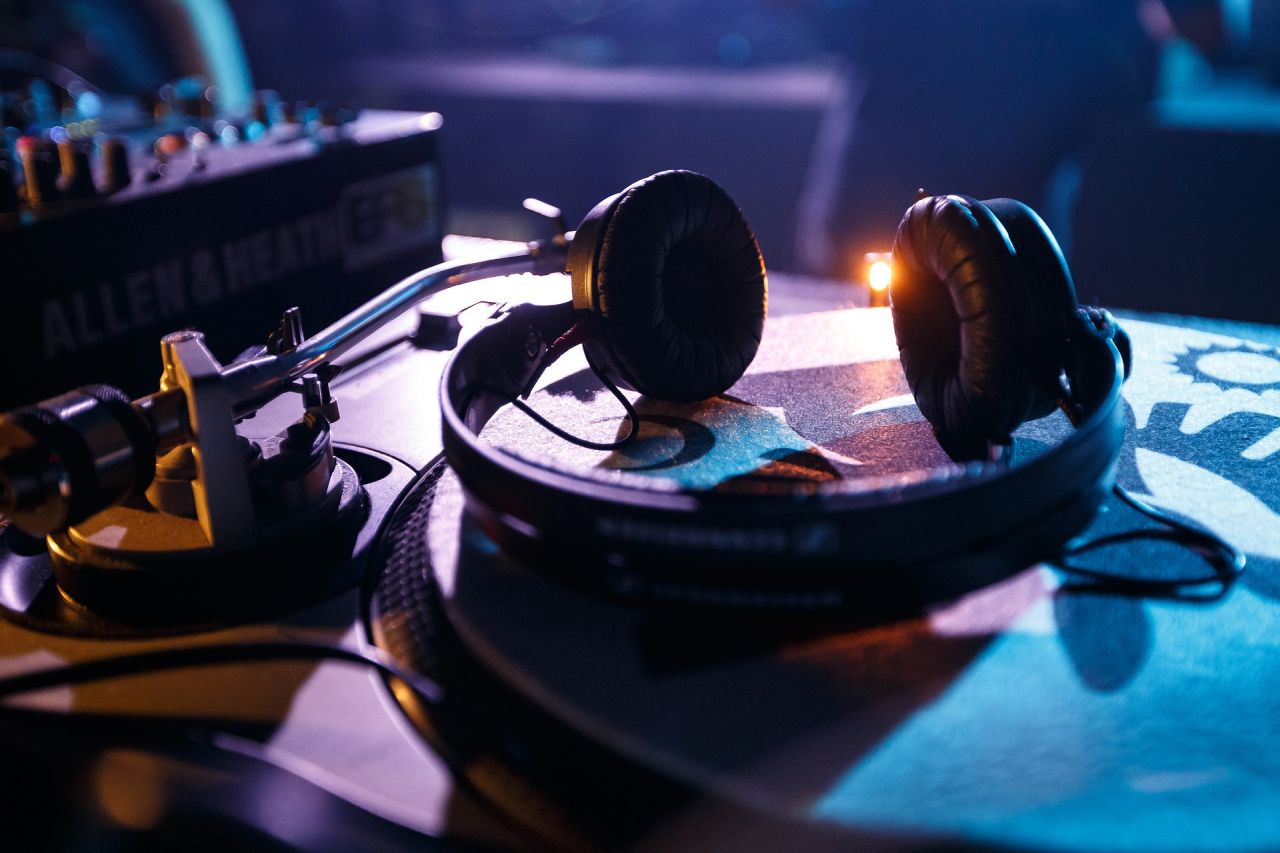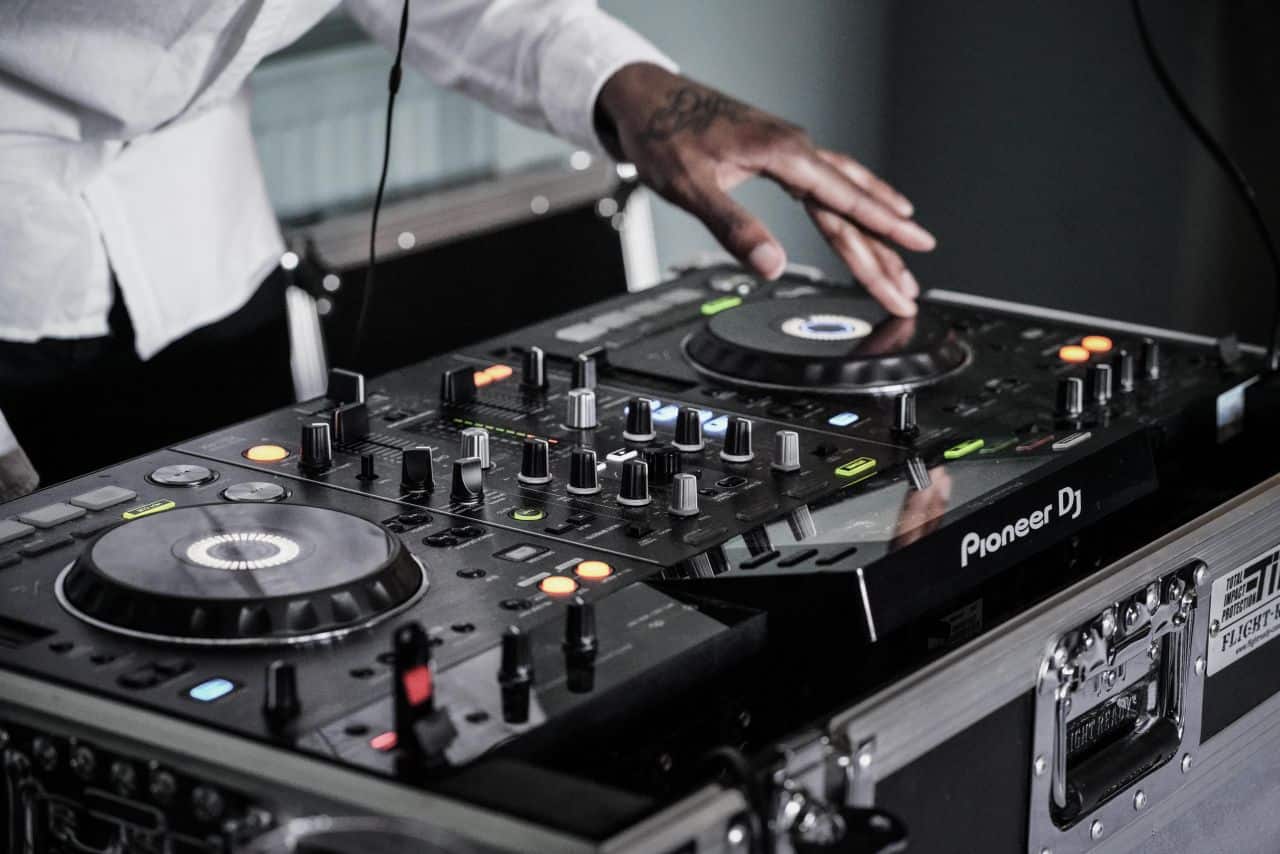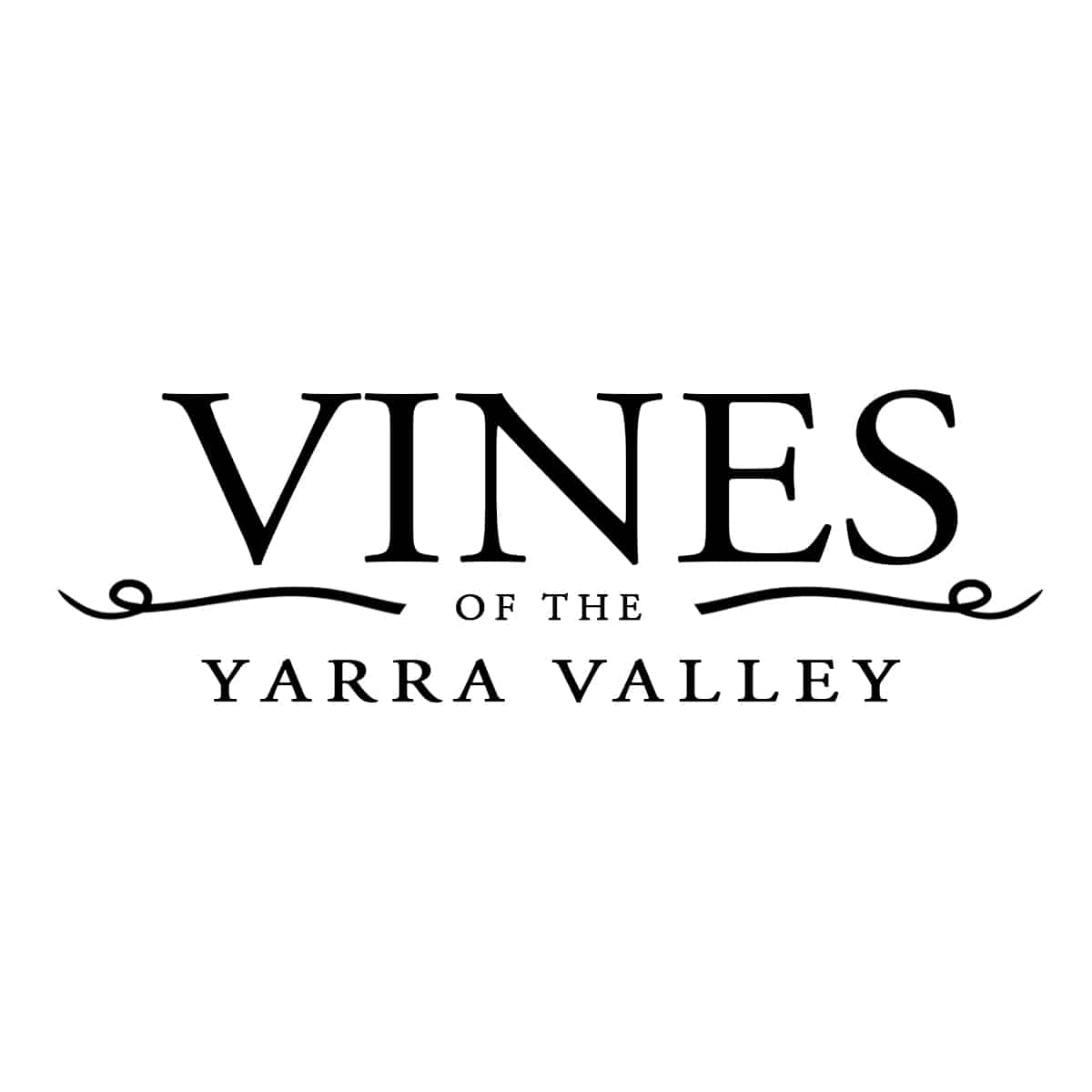A wedding DJ plays a vital role in creating the atmosphere of your special day. Their responsibilities extend beyond playing songs, from managing the music to coordinating key moments.
A well-chosen DJ will ensure your event runs smoothly, allowing you and your guests to enjoy the celebration without worry.
In this guide, we’ll walk through what to expect from your wedding DJ and how they can make your day truly memorable.
Let’s get straight to the point
A wedding DJ is essential for managing music and coordinating key moments throughout your reception.
They’ll curate a playlist based on your preferences, take guest requests, and read the crowd to keep the party lively.
Acting as the MC, they’ll also make announcements, guide the event schedule, and handle special moments like the first dance and bouquet toss.
Your DJ will bring professional sound equipment, maintain a high level of professionalism, and ensure everything runs smoothly by being flexible and communicative before and during the event.
1. Music Selection and Playlist Management
The primary task of your DJ is music management. They will handle every aspect of the music throughout your event, from the ceremony to the last dance. Here’s what you can expect:
Curating the Playlist
At the start of your planning, your DJ will work with you to curate a playlist that reflects your preferences. Some of the tasks they’ll manage include:
- Creating a Playlist: They will blend your favourite songs with crowd-pleasers that appeal to a wide variety of guests.
- Key Moment Songs: Provide a list of “must-play” songs for special moments, such as your first dance, cake cutting, and the final song of the night.
- Avoiding Unwanted Songs: Make sure you also list songs you don’t want to hear to avoid any unpleasant surprises.
Taking Requests and Reading the Crowd
A professional DJ knows how to balance guest requests with your desired vibe.
They will take requests that fit with the flow of the evening, ensuring the atmosphere remains aligned with your preferences.
Another critical skill is the DJ’s ability to read the crowd and adjust the energy accordingly.
They’ll know when to slow things down or kick up the tempo to keep the dance floor active.
Tips for Preparing Your Playlist
To ensure a smooth experience, follow these steps:
- Provide your DJ with a list of favourite songs.
- Include songs that appeal to different generations of guests.
- Separate playlists for special moments, such as the first dance and bouquet toss.
- Leave room for flexibility so your DJ can adjust the music to the crowd’s energy.
2. DJ as Master of Ceremonies (MC)
In addition to handling music, many DJs also serve as the Master of Ceremonies (MC).
This means they are responsible for guiding the flow of your wedding day and making important announcements.
Key Announcements
Here are some typical announcements your DJ will make:
- Introducing the wedding party as they enter the reception.
- Announcing special dances, such as the first dance or parent dances.
- Calling for toasts and speeches.
- Signalling the cake cutting.
- Announcing the bouquet and garter toss, if included.
Keeping the Event on Schedule
The DJ will work closely with your wedding coordinator or planner to ensure everything happens at the right time.
They will manage the schedule for transitions, such as moving from dinner to dancing or ensuring the formalities run on time. This keeps the event structured without feeling rushed.
3. Managing Special Moments
Your DJ will help highlight special moments, ensuring they are well-timed and seamlessly integrated into the evening.
Cocktail Hour
During cocktail hour, the DJ will set a relaxed mood with soft background music. This is typically a time for light jazz, classical tunes, or acoustic songs, though you can personalise the music to your taste.
Wedding Party Introduction
The wedding party introduction is one of the first big moments of the reception. The DJ will play a lively, upbeat song to set the tone as you and your bridal party enter the room.
Whether you choose a single song for the group or individual tracks, the DJ ensures that each entrance is perfectly timed.
Dinner Music
For the dinner segment, your DJ will select low-volume background music that complements the meal.
Soft instrumental pieces or light acoustic songs are ideal for this time, ensuring guests can enjoy conversation without the music overpowering them.
First Dance and Special Dances
One of the most anticipated moments of the reception is the first dance. The DJ will play your selected song and ensure it starts at the perfect moment.
Other special dances, such as the father-daughter dance or the mother-son dance, will be similarly handled.
4. Keeping the Party Alive: Dance Music and Transitions
Once the formalities are out of the way, your DJ will take on the responsibility of keeping the dance floor lively.
They’ll know how to transition from the calm of dinner to upbeat tracks that get guests dancing.
Crowd Interaction and Song Requests
Your DJ will interact with the crowd through their music choices, ensuring smooth transitions between songs.
They’ll mix popular tracks from different decades, keeping the dance floor full.
Song Transitions
Smooth song transitions are key to maintaining the energy. A skilled DJ will avoid awkward pauses, ensuring the momentum of the party never dips.
5. Handling the Bouquet and Garter Toss
If you’ve chosen to include the bouquet and garter toss, your DJ will manage the excitement around these moments.
They’ll play appropriate music to build energy and clearly announce the activities so everyone is prepared to join in.
6. Final Song and Send-Off
At the end of the night, your DJ will play the final song, marking the conclusion of the event.
Whether you prefer a slow, romantic track or an energetic song to keep spirits high, the DJ will set the tone for your farewell.
After the song, they will thank your guests and wish you well before wrapping up.
7. Equipment and Sound Quality
Your DJ will bring all the necessary sound equipment to ensure high-quality audio throughout your reception.
Speakers and Microphones
- Speakers: The DJ will set up a system that fills the venue with music, ensuring it’s loud enough to enjoy but not overwhelming.
- Microphones: Wireless microphones will be provided for speeches, toasts, and announcements.
Backup Equipment
To avoid any disruptions, a professional DJ will bring backup equipment.
This includes extra microphones, speakers, or even laptops to ensure the event continues smoothly, even if technical issues arise.
8. Professionalism and Behaviour
Your DJ should maintain a high level of professionalism throughout the event.
Attire and Conduct
They’ll dress according to the style of your wedding, whether it’s formal or casual, and will behave respectfully, ensuring they blend into the event without drawing undue attention.
They won’t overindulge in food or drinks, and won’t use your wedding to promote their services in a distracting manner.
Flexibility and Communication
A good DJ will be in regular communication with you leading up to the wedding.
They’ll discuss music preferences, timelines, and any special requests you have. Additionally, they should be flexible enough to accommodate any last-minute changes without causing stress.
Conclusion
A professional wedding DJ is key to creating an unforgettable and well-organised reception.
From curating the perfect playlist to managing announcements and special moments, they ensure everything runs smoothly.
By clearly communicating your preferences and understanding their role, you can enjoy a seamless and joyful celebration.
Frequently Asked Questions
How long should the DJ set be at a wedding?
It’s usual for Wedding DJs to provide music for around 4-5 hours. Just bear in mind that even the most professional DJ needs a break now and then, and your guests would probably welcome a breather from dancing every 90 minutes or so too!
When should a DJ arrive at a wedding?
One to two hours in advance is the most common time frame a DJ would arrive before the first guests arrive. That way there is plenty of time to set up, change into professional attire, and review all of our notes one last time before the celebration kicks off!
How much space does a DJ need?
Most DJs will provide a high-quality sound system along with a DJ booth and a small lighting rig. As a guide, we advise allowing approximately 2 x 2 meters of space for the DJ to set up in.
What are DJ boards called?
A mixer can be called many different names – audio or mixing console, DJ controller, sound mixer, soundboard, but most often you’ll hear it referred to simply as a DJ board or mixer. No matter what you want to call it, they all are designed to allow the DJ to mix and manipulate audio.
What is a DJ booth?
A DJ booth is a small area in a club or other event space that is separated from a larger public area and usually plays host to the disc jockey. The booth is the control center of the sound system. It typically holds equipment such as a turntable, microphones, and computer.



